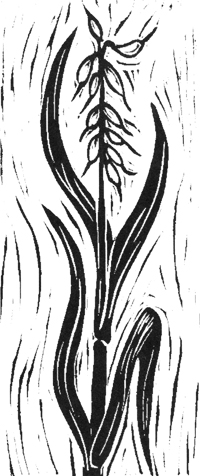
For the last few days I have been lost in the thicket of the Indian summer garden, gathering the ripe seed of Galactic lettuce, Russian sunflowers, and multi-hued quinoa that hails from the Andean highlands. My hands ache from cracking open brittle pods and threshing autumn seed treasures to plant in next year’s garden and to give away.
“Be joyful, although you know the facts,” encourages poet Wendell Berry. This is timely seasonal advice, especially considering that the free exchange of seed and crops among growers has been at the foundation of all abiding culture, biological diversity, and food security for the last ten thousand years of agriculture. Today, however, some ten multinational corporations control more than one-third of the commercial seed market and all of the market for genetically engineered seed and crops.
Fortunately, organic gardeners, and engaged meditators as well, can be a defiant lot, finding joy in going against the grain and delight in a handful of dust. Disobedient as wild seed collected in the harvest season, this brood declines to behave.
Years ago I read the account of an American woman named Ruth who traveled to Russia in the late 1970s with a group of organic gardeners to explore the gardens and seed banks of the Soviet Union. As the group made their pilgrimage before such travel was safe or common, they were closely monitored by their Russian hosts.
Ten days into their tour, on a blustery afternoon, Ruth escaped from the tight group schedule and headed out by herself into the Russian countryside. Two miles out of town, she came upon a small Russian house surrounded by a wild garden. Chestnuts and striped Astrachan apples spilled over the fence, littering the road. Overcoming her shyness, Ruth pushed open the gate and entered the ripe, red heart of that garden.
The place was a tangle of fruit and late summer flowers running in thick drifts between rows of vegetables. Plush burgundy-and-beige-speckled beans split open their pods, covering the ground with the spilled jewels of autumn. A stand of Stone Age Wheat and dark barley grew beyond the house. The entire garden crackled with drying seed, and all of the choicest seed plants were marked with labels written in meticulous Russian script.
By the time the woman of the house discovered her American trespasser, Ruth was on her hands and knees in the garden, breathing in the fragrance of a thick spray of coral tea roses. “It was an awkward moment,” she later confessed. “I had pollen all over my face and I was eating a windfall apple.” Defeated by her meager Russian, Ruth dropped her guard and spoke the blunt truth: “Your garden is beautiful,” she proclaimed to her startled hostess. “So beautiful.” Two generations older than Ruth, the Russian matriarch fixed her American stranger with an unwavering eye as the two gardeners met face to face, true mind to true mind.
Ruth returned to town well after dark. The tour leaders were frantic when she entered the hotel lobby laden with jars of wild fruit preserves, pickled beets, and a loaf of still-warm Russian bread. Every pocket of her travel jacket was stuffed with seed, gifts she distributed among her gardening friends as they stayed up well past midnight eating slabs of the black bread and listening to Ruth’s stories of the secret garden, all the while plotting what seed they would send back from their own gardens to their new Russian friend.
Surely some of the seed that Ruth was given that windy autumn afternoon originated from the more than 165,000 distinct samples of seed collected worldwide by Russian biologist Nicolai Vavilov in the early twentieth century. During the siege of Leningrad in 1940, Vavilov and a team of his scientists died of starvation protecting this cache of seed so that it could be grown out and distributed for the nourishment of future generations.
Isn’t it time now for a new breed of seed ambassadors to band together against the grain and to regard all life not as patented property but as kin? If you agree, resist eating or planting the seeds of genetically altered crops. Instead, cultivate a broad diversity of plants in your garden and let those plants run to seed. Then leave your gate open and share the harvest with all beings.
Thank you for subscribing to Tricycle! As a nonprofit, we depend on readers like you to keep Buddhist teachings and practices widely available.